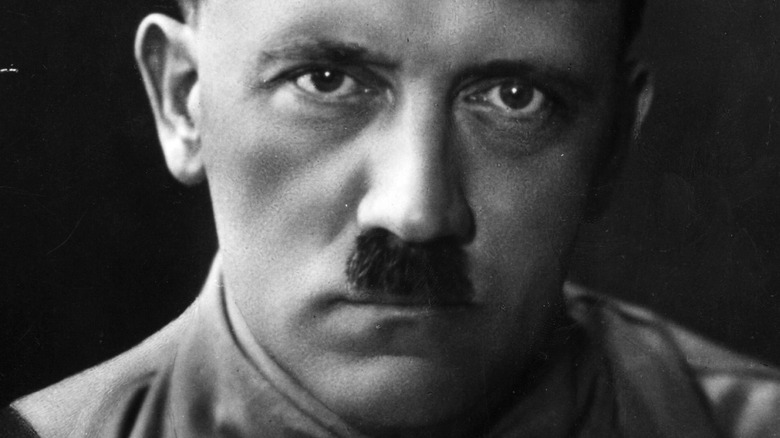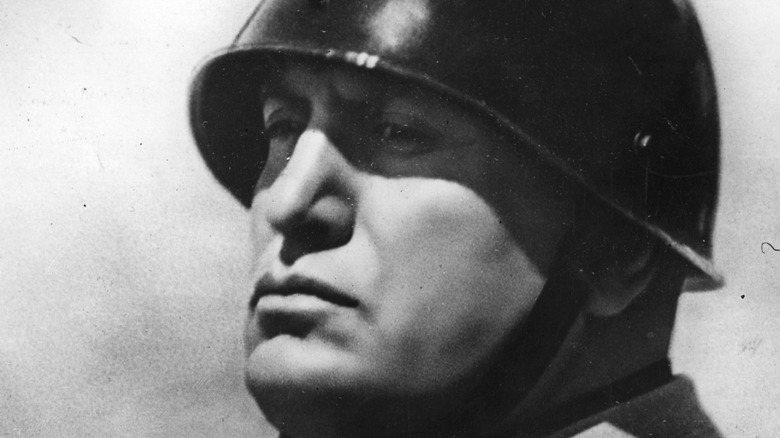Why Hitler Cried When He Met Benito Mussolini
Adolf Hitler, the infamous leader of Germany throughout World War II, is known for being many things: a tyrant, a psychopath, and, apparently, a crier. That is, at least, when Hitler met Benito Mussolini, an Italian fascist leader from the period on Hitler's side in the conflict.
Adolf Hitler crying is not the first unexpected personality trait to be revealed about the German Führer since the end of the war. For example, Hitler began his life with designs on becoming an artist, and many of his watercolors and drawings exist today, according to History. These artistic aspirations, however, would go nowhere for the young man.
Hitler was also a bit of a health fanatic who refrained from smoking, drinking, and even ate a vegetarian diet. It wasn't all healthy living for Hitler, however. He was also likely addicted to opiates, according to Brittanica.
All combined, this presents a more complex picture of what Hitler was actually like, but knowing that Hitler cried when he met Benito Mussolini does not ameliorate his image — or his legacy — whatsoever.
Adolf Hitler loved Italy
Hitler crying when he met Mussolini is recorded in the journals of Mussolini's lover, Claretta Petacci (via The Telegraph). According to Petacci, Mussolini told her that Hitler had "tears in his eyes" the first time they met in 1938 (via Mental Floss). So, what brought on the waterworks?
Hitler, it turns out, was a bit of a Mussolini fanboy, modeling his aspirations for absolute power on Mussolini, stretching all the way back to the 1920s. For this reason, meeting Mussolini for Hitler was a pretty big deal — and that's not all. Hitler was also a fan of Italian art, and some historians believed he planned on retiring to the country after the war (via the Evening Standard).
Both Hitler and Mussolini were ardent anti-Semites and racists. It seems likely, then, that when the pair met for the very first time in the late 1930s, they had a lot to talk about. Petacci also records that Mussolini described Hitler as "pleasant," and "an old sentimentalist at heart."
None of this should inspire any sympathy, however, for a man responsible for killing millions upon millions in the Holocaust — it's simply an interesting tidbit about a man universally reviled as a monster.

